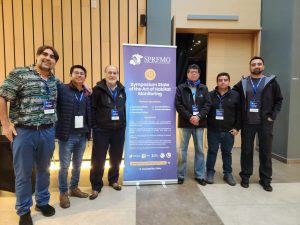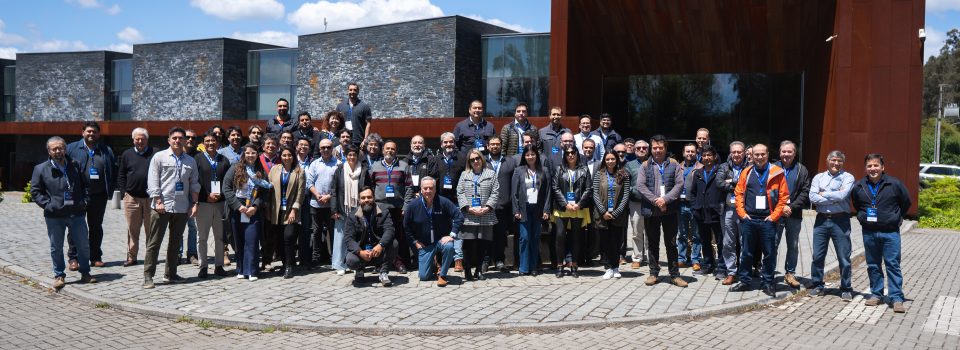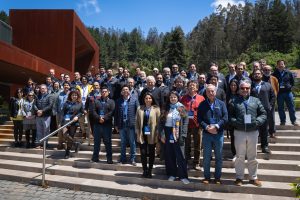IFOP’s Outstanding participation in international symposium
November 14th, 2023 Between November 6th and 10th, State of the art of habitat monitoring international symposium was held in Concepción. This event aims to share and review current best practices related to habitat monitoring and research, to better inform marine resource management approaches based on marine ecosystems.
Between November 6th and 10th, State of the art of habitat monitoring international symposium was held in Concepción. This event aims to share and review current best practices related to habitat monitoring and research, to better inform marine resource management approaches based on marine ecosystems.
Fisheries Development Institute’s Direct Evaluations Department Participants were: Víctor Catasti, José Córdova, Francisco Leiva, Adrián Ibieta, Luis La Cruz, Javier Legua
Session: Environmental variables and oceanographic mechanisms or fish spatio-temporal distribution associated processes.
Topics related to South Pacific environmental data acquisition and monitoring were addressed: Using multidisciplinary information to better understand fish spatio-temporal distribution changes in response to habitat variability; Propose hypotheses that could reconcile different points of view related to understanding factors that drive fish spatial distribution and discuss data needed to have a better understanding of changes in fish habitat and spatial distribution of fish throughout their life cycle in response to future anthropogenic climatic change.
IFOP presented:
José Córdova and Víctor Catasti.
Horse mackerel spatio-temporal distribution and its spatial indicators and density index in northern Chile.
Víctor Catasti, José Córdova, Bernardo Leiva and Milena Pizarro
Horse mackerel Distribution and its association with environmental variables in northern Chile.
Session: Modeling, indexes and relevant indicators to improve pelagic and deep-sea species habitat monitoring.
Environment related Issues were addressed as an important factor that controls pelagic and deep-sea species distribution and habitat. One approach to habitat monitoring is through identification of indicators that allow parameterizing distribution control variables and todetermine marine resources potential habitat.
IFOP presented:
Javier Legua, René Vargas, Adrián Ibieta, Manuel Rojas, Jairo Gutiérrez, Luis La Cruz and Sergio Lillo
Southern Hake target strength In situ measurements (Merluccius australis) in Aysén Region Inland Sea, Chile.
Francisco Leiva, Eleuterio Yáñez and Felipe Sánchez
ENSO Effect on juvenile and adult anchovy habitat (Engraulis ringens) in northern Chile (18°25 S-25°00 S).
Session: Habitat monitoring Technologies and methods available
Technologies and methods developed for habitat monitoring emerge as crucial starting points for our understanding of oceanographic and ecosystemic processes involved in fisheries studies. Acoustic methods (passive and active) are widely used in fisheries research and often provide relevant information that could not be obtained otherwise. Some examples of technologies and methods are: ecogenomic sensors, electronic monitoring on fishing vessels, autonomous platforms and vehicles, scientific echo sounders. A large number of these technologies are already in use or under development.
.
IFOP presented
Luis La Cruz, Felipe Sánchez, Sergio Lillo, Adrián Ibieta, Jairo Gutierrez, Jorge Castillo, Álvaro Saavedra and Francisco Leiva
Fish length measurements using EK80 echo sounder: echo sizes anchovy distribution in Atacama Region, Chile 2023.

